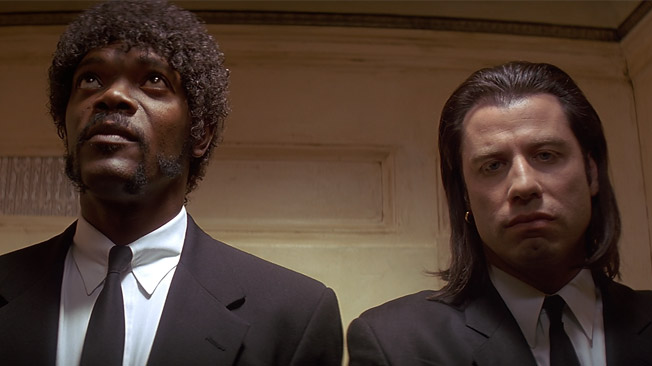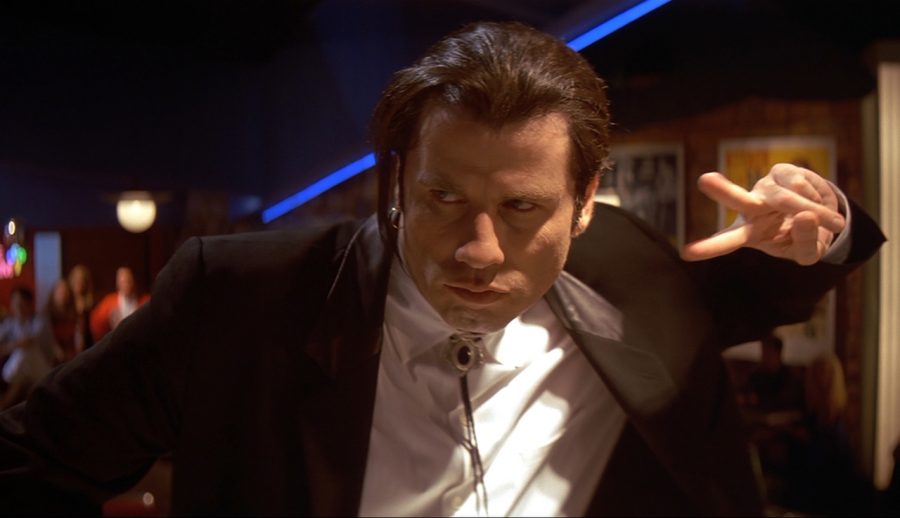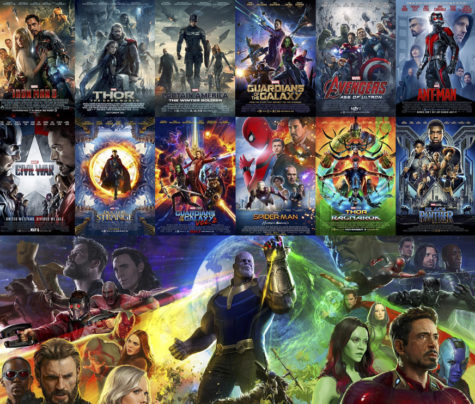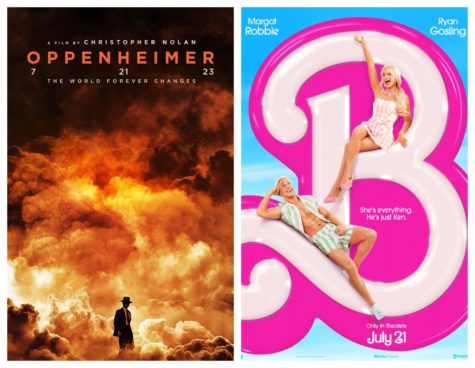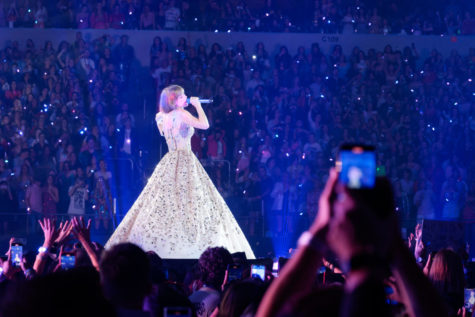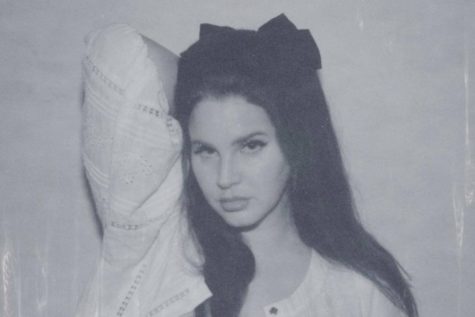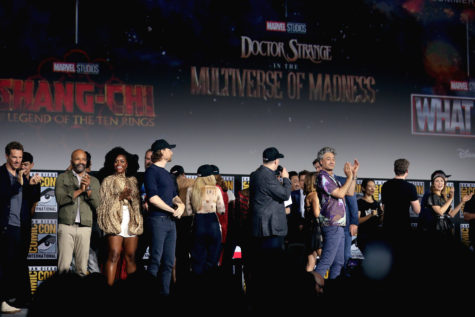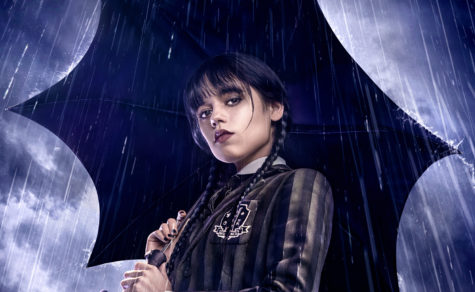Pulp Fiction: a retrospective
Image of Jules and Vincent taken from arguably the most iconic sequence in Pulp Fiction.
Re-watchability. If there’s a word to describe Quentin Tarantino’s 1994 masterpiece Pulp Fiction, among all others, it would be re-watchability. In fact, it’s arguably the most re-watchable film ever put to cinema. The fast-paced, memorable dialogue, iconic music, and unforgettable plot made this film a classic upon its initial release. However, almost 25 years later, does it still hold up the same?
Released in 1994, Pulp Fiction was Tarantino’s second film, the first being the classic indie flick Reservoir Dogs. Starring the likes of Samuel L. Jackson as Jules Winnfield, John Travolta as Vincent Vega, Bruce Willis as Butch Coolidge, and Uma Thurman as Mia Wallace, Pulp Fiction crushed both the box office and critic reviews. RogerEbert gave the film a perfect 4 stars out of 4, writing “‘Pulp Fiction’ is constructed in such a nonlinear way that you could see it a dozen times and not be able to remember what comes next.”
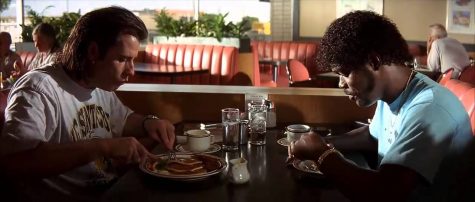
Indeed, one of the most fascinating aspects of Pulp Fiction is the nonlinear structure of its narrative. The story is not told in chronological order; instead, it weaves in and out of different times. The film starts off with a couple conversing before attempting to rob a diner; by the end of the film, we’re back at the scene of the robbery. However, in-between that sequence are events that occur both before and after, such as the iconic interrogation scene with Jules and Vincent or Vincent’s date with the boss’s wife gone horribly wrong.
The music choices of this film are nothing short of stellar, from the groovy “Jungle Boogie” to Al Green’s quintessential single “Let’s Stay Together” to the surfer’s anthem “Miserlou” that is now widely associated with the film. The diversity of the movie’s soundtrack makes the film come alive; it simply wouldn’t be as impactful without it’s outstanding music.
Pulp Fiction is regarded as one of the most influential films of all time. With a Metacritic score of 94/100, eight awards out of 26 nominations, and a ranking of 9th out of the top 100 films from Empire, the film has withstood the test of time. Perhaps the greatest indicator of the film’s greatness comes from the praise of the late Stanley Kubrick, widely regarded as one of the greatest film directors of all time and one of Tarantino’s idols.
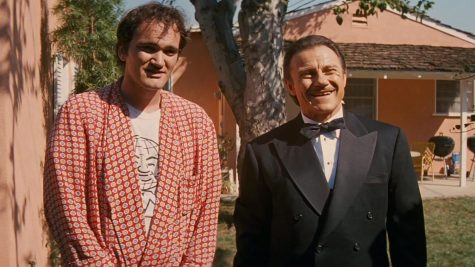
Pulp Fiction broke the door open for mainstream films that glorify violence; it’s interesting to question if there’d even be a film such as Fight Club if not for Tarantino’s sophomore flick. The way the film—and it’s predecessor—deviated from the norm of Hollywood blockbusters at the time is akin to what Wu-Tang Clan’s Enter the Wu: 36 Chambers and Nas’s Illmatic did to revolutionalize the state of New York hip-hop in 1993 and 1994, respectively. In terms of Tarantino’s movies, it’s certainly the OK Computer of his filmography, a true magnum opus.
Overall, Pulp Fiction is a timeless masterpiece of cinema that still holds up in 2019, over two decades since it’s release.
Your donation will support the student journalists of Wiregrass Ranch High School. Your contribution will allow us to purchase equipment and cover our annual website hosting costs.

Stephen White II is a senior at Wiregrass Ranch High School. This is his second year writing for The Stampede. He likes to listen to music as well as write...

